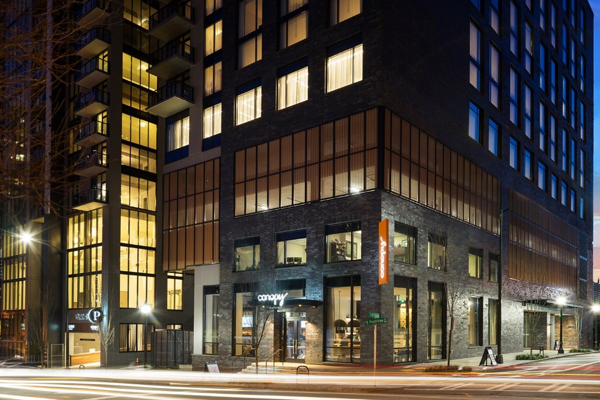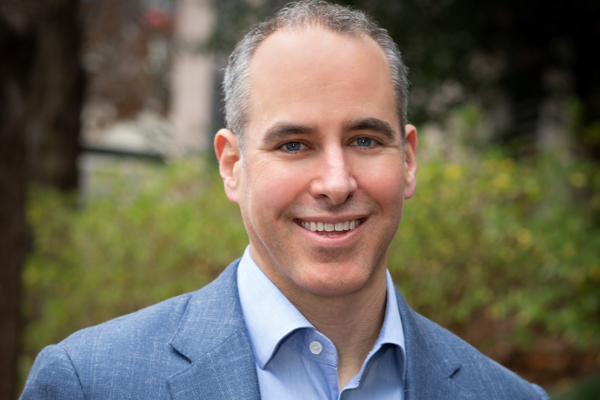An expanded breadth of investment types has led Peachtree Hotel Group to rebrand as Peachtree Group to manage and control its multi-billion-dollar investment portfolio and direct investment strategies across its distinct operating and real estate divisions, including hospitality, commercial lending, residential development and capital markets.
As it more specifically relates to its ongoing hospitality investment strategy, Peachtree Group CEO Greg Friedman said evolving economic dynamics are influencing its approach. “The difficulty it creates on the acquisition front makes a solid case to focus on developments,” Friedman said. “You are less concerned about the short-term headwinds. Everything happening now is transitory; nothing is permanently changing the fundamentals of hospitality.”

As a result, Friedman said Peachtree Group would rather focus on developments that will be coming out of the ground in 12 to 18 months. “There is a minimal number of companies that can build new hotels successfully,” he said. “When we open in two years or so, our hotels will be one of the limited numbers of those opening. And we will be opening in market conditions and should reap the benefits of the next upcycle.”
Even with the bullish outlook on development, the newly dubbed Peachtree Group reflects the recognition of potentially broader investment opportunities across asset classes. Led by its managing principals Friedman and Jatin Desai, serving as CFO, Peachtree’s operating companies will continue to be led by their current executives.
Peachtree’s hospitality division includes Peachtree Hotel Group, which will continue to invest in hospitality-related real estate; Peachtree Hospitality Management, a management company that operates 80 hotels across 23 brands with 9,579 rooms located in 21 states; and Peachtree Hospitality Development, the hotel construction and renovation group.
The commercial lending division includes Stonehill and its affiliated companies, Stonehill Commercial Real Estate Group, which originates loans across all real estate sectors, and Stonehill PACE, a direct property-assessed clean energy lender for all commercial asset classes.
The residential development division includes The Revive Land Group, which focuses on designing, entitling and developing residential and mixed-use projects.
The capital market division includes Peachtree PC Investors, the exclusive managing broker-dealer for Peachtree’s investment offerings.
In-house approach
Peachtree Group’s ecosystem, or what it refers to as a vertically integrated management platform, has been a key to its success, according to Friedman. “Having all our vertical businesses in-house lets us get the best execution for a specific opportunity.”
Further, Friedman stated, having those resources and institutional knowledge in-house makes Peachtree much better in each of its business units. “We are a better buyer because of what we do on the lending side, and we are a better lender because of what we do on the buying side,” he said. “And our development capabilities encapsulate that as well. We know how to build and renovate hotels, which helps drive the other businesses. And we can efficiently operate and optimize low-performing assets via our hotel management platform.”
Given the volatility in the market right now, Peachtree Group’s initial focus will be on the debt side, given the inherent downside protection. “While we have made strategic one-off equity positions, one, in particular, is a US$150 million mixed-use development in Atlanta with office, residential and retail components,” Friedman said. “However, we will not make large macro bets in equity positions outside hospitality.”

At the appropriate time, he said Peachtree will increase its appetite to acquire and develop assets with similar characteristics to hotels, like self-storage. “Ultimately, we will make investments up and down the capital stack in all asset classes,” Friedman said.
Peachtree first migrated into other real asset classes through Stonehill and its Stonehill PACE division, which makes commercial property-assessed clean energy (C-PACE) financing. “We made this decision pre-pandemic before the volatility in the market and the rising interest rate environment due to the increasing demand from ownership groups outside of hospitality,” Friedman explained, adding that while hospitality is the most significant sector, Stonehill PACE has completed C-PACE financing in multifamily, industrial, retail and senior housing. “As a result, this group has become one of the country’s largest C-PACE providers in the U.S. and by yearend will have completed north of US$400 million in total C-PACE financing.”
More recently, Peachtree has expanded Stonehill to include lending across all real estate sectors, having brought in a well-connected team that has already made significant debt investments in projects with a combined basis north of US$150 million, which includes retail, specifically malls, and a mixed-use development opportunity. “We expect to achieve US$300 million plus of investments in non-hospitality assets this year and are targeting over US$500 million in 2023,” Friedman said.
Net hotel buyer
Nonetheless, on the hospitality side, Stonehill expects to have roughly US$1 billion in transactions this year.
Friedman added that Peachtree Group will be a net buyer on the hospitality side as it remains extremely bullish on the sector due to current fundamentals. “Moreover, the aftermath of COVID has created tailwinds in this sector, making a compelling case for hospitality to be the most investable asset class today,” he said.
Friedman pointed to limited new supply; how in an inflationary environment, hotels can reprice daily; and a good risk-premium spread off the 10-year Treasury on a cap rate basis from where they trade. “In addition, the outlook for demand will be substantial over the next three to five years. This makes our case to be a net buyer with strategic asset sales along the way,” he said.
Friedman added that a higher interest rate environment will create a market with more transaction volume, believing ownership groups that have relied on heavy leverage will be forced to sell.
“Higher interest rates in commercial real estate are compelling to be a lender as you can achieve equity-like returns,” Friedman said. “Specifically, in hospitality, we see increased transaction volume next year due to fatigue in the market between ownership groups and their lenders, franchisors and investors.”
Further evidence of higher transaction volume ahead: Friedman cited lenders being less willing to work through maturity renewals and technical defaults; hotels needing significant PIPs completed sooner rather than later; as well as limited distributions and needed capital injections frustrating investors. “This fatigue and pressure from those factors will create an environment for transaction volume to increase at reasonable valuations,” Friedman said.
He added that Stonehill continues to help hotel owners with capital to refinance, acquire and develop. They provide senior debt, mezzanine financing, and preferred equity positions on hotel assets.
Stonehill has also launched Stonehill Commercial Real Estate to handle the financing outside of hospitality. Established in May 2022, this division is actively originating loans in multiple real estate sectors and has a roughly US$200 million pipeline.

